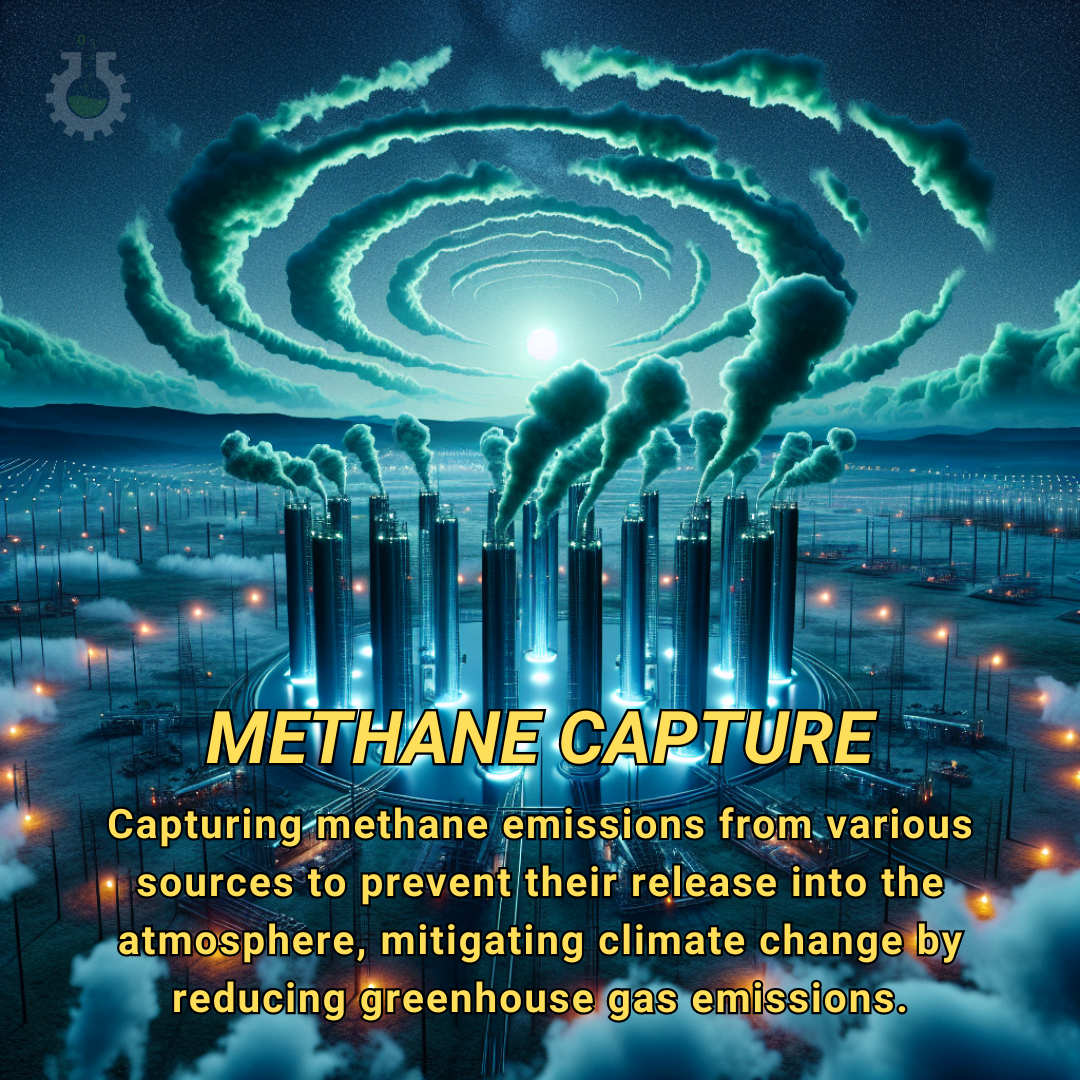April 2, 2024
Climate Change Poster Collection of the Day – Methane Capture
Book a Demo
Today’s Climate Change Poster Collection highlights Methane capture, emerging as a pivotal strategy in the global effort to combat climate change, drawing increasing attention for its potential to significantly curb one of the most potent greenhouse gases affecting our planet’s atmosphere. The process entails the collection and containment of methane emissions, which are over 25 times more effective than carbon dioxide at trapping heat over a 100-year period, as reported by the Intergovernmental Panel on Climate Change (IPCC). The urgency to address methane emissions is underscored by their substantial contribution to the rapid warming of our planet, despite methane’s relatively lower concentration in the atmosphere compared to carbon dioxide. Natural sources of methane include ecosystems such as wetlands and the digestive processes of termites, while significant anthropogenic sources stem from activities related to agriculture—particularly from enteric fermentation in livestock—waste management in landfills, and the extraction, processing, and distribution of fossil fuels like coal, oil, and natural gas. By focusing on these human-related sources, methane capture technologies can play a transformative role in reducing emissions and mitigating climate impacts.
The techniques for capturing methane are diverse, each tailored to address specific emission contexts. Landfill gas recovery systems capture methane generated by decomposing organic waste, which can then be converted into electricity or upgraded to renewable natural gas for heating or transportation. Anaerobic digesters treat agricultural waste such as manure to produce biogas, a renewable energy source that can replace fossil fuels. In coal mines, methane can be captured before, during, or after mining operations to not only reduce emissions but also harness a valuable energy resource. The oil and natural gas industry can mitigate its methane footprint by implementing leak detection and repair programs, utilizing advanced technologies to identify and seal leaks throughout the production and supply chain. The connection between methane capture and climate change is clear and compelling. By preventing methane from entering the atmosphere, we can make immediate and significant progress in reducing the rate of global warming. This is particularly crucial given methane’s short atmospheric lifespan yet swift impact on climate, making it a prime target for rapid climate action.
Beyond the climate benefits, methane capture presents numerous advantages, including the reduction of air pollution that can harm human health, the creation of new economic opportunities through the development of methane capture industries, increased resource efficiency by repurposing waste emissions as energy, and helping industries meet increasingly stringent environmental regulations aimed at lowering greenhouse gas emissions. However, the path to widespread methane capture is not without obstacles. High upfront costs for infrastructure and technology can be a barrier to entry, and ongoing research and development are needed to enhance efficiency and cost-effectiveness. Additionally, policy frameworks and incentives are critical to encourage the adoption of methane capture solutions across different sectors. Despite these challenges, the momentum for methane capture is growing. As awareness of its importance spreads and as governments and industries commit to climate goals, investment in methane capture technology is likely to increase. This, in turn, will help drive innovation, lower costs, and facilitate the integration of methane capture into our broader climate change mitigation strategies.
In conclusion, methane capture stands as a vital component in the global response to climate change. By advancing these technologies and practices, we have the opportunity to make a profound and positive impact on the environment. It is imperative that we continue to support and invest in methane capture initiatives, promote policies that enable their success, and engage in collective action to ensure a sustainable future. Every individual and organization has a role to play in this endeavor, and together, we can work towards a healthier, more stable climate for all.
Discover an inspiring collection of climate change poster.



